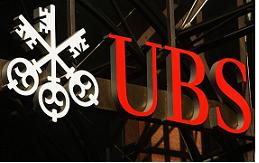Account Details
Swiss lawmakers back UBS treaty, call for referendum
 Lawmakers in the Swiss lower house today backed a government treaty with the U.S. to disclose account details about UBS AG clients, moving closer to resolving a conflict over suspected tax evasion.
Lawmakers in the Swiss lower house today backed a government treaty with the U.S. to disclose account details about UBS AG clients, moving closer to resolving a conflict over suspected tax evasion.
Deputies backed the agreement by 81 votes to 61. They also supported a proposal to give voters the chance to put the treaty to a nationwide referendum, placing them at odds with the upper house, which rejected such a move. The treaty may be scuppered unless lawmakers find a common ground on every aspect of the deal by the end of the week.
UBS, the country's biggest bank, and the Swiss government have been trying to avert lawsuits in the U.S. by agreeing to hand over data of as many as 4,450 suspected tax dodgers. Failure to approve the treaty in parliament may lead the U.S. to take retaliation measures and may put the bank's American business at risk.
"Lawmakers will eventually approve the treaty without calling for a referendum" said Franco Taisch, a professor of business law at the University of Lucerne. "The question is too important," for Switzerland and the current situation "doesn't help our reputation abroad."
The Swiss government was forced to turn to parliament after the Federal Administrative Court ruled in January that the tax deal wasn't fully enforceable under Swiss law. While some lawmakers tried to tie their approval to tougher rules for Switzerland's banking industry, supporters argued that a rejection could harm other Swiss banks and have an impact on the country's export industry.
Political Credibility
"This is about our political credibility and our political reliability," Swiss Justice Minister Eveline Widmer-Schlumpf said during the debate in Bern today. A rejection would cause "massive economic disadvantages," and the government would like to tackle "questions of the future," she said.
UBS spokesman Dominique Gerster declined to comment on the lower house's vote.
UBS shares rose as much as 3 percent to 15.66 francs today in Zurich as the deal moved closer to a possible resolution. The lower house in a first vote last week rejected the treaty. The shares traded at 15.49 francs as of 12:40 p.m. local time.
The treaty needs approval and a common ground on the referendum question in both chambers of parliament to come into force. The upper house already rubber-stamped the accord and voted against the possibility for a popular referendum.
Parliament Session
Both chambers have until June 18, the last day of the parliament's session, to resolve their differences regarding the referendum. During that process, each chamber will deal with the issue in one more separate session. Failure to reach an agreement would result in a joint commission trying to get over the disagreements.
According to the deal with the U.S. government, Switzerland has until August to order disclosure of the UBS client data. A popular vote would mean that the country can't stick to the treaty's timetable.
A vote for a referendum in both chambers doesn't necessarily mean that such a vote will be held. At least 50,000 Swiss voters or eight of the countries' 26 cantons have to sign a request for a so-called 'optional referendum' in order to hold such a popular vote.
(Published by Bloomberg – June 15, 2010)